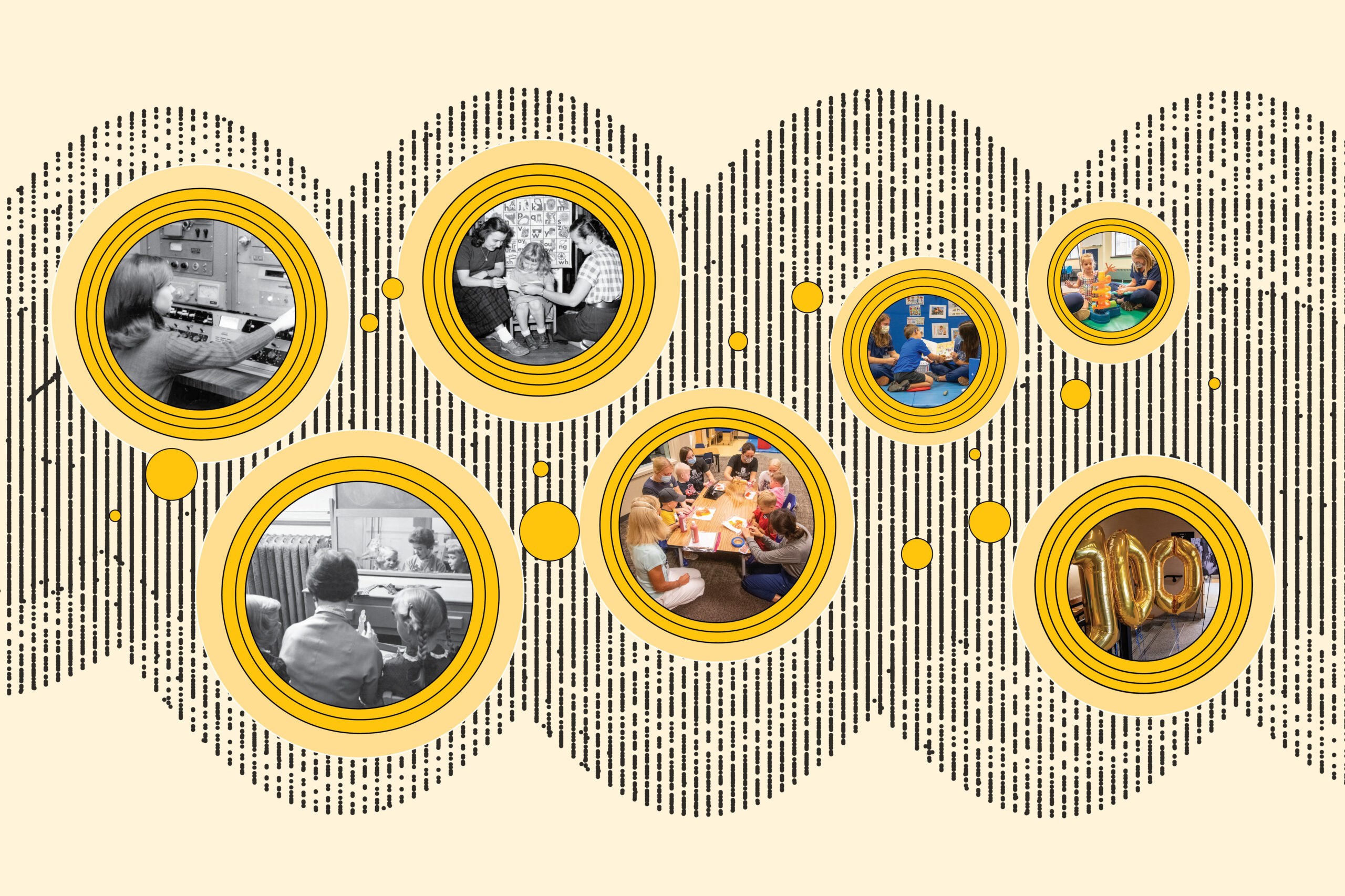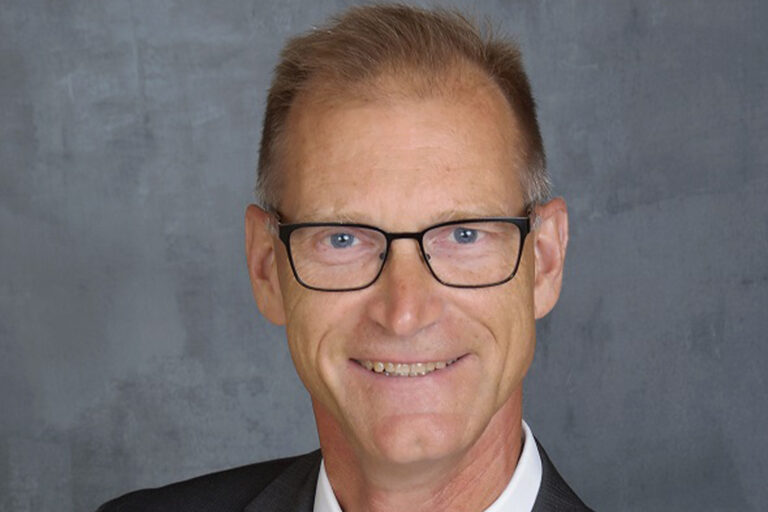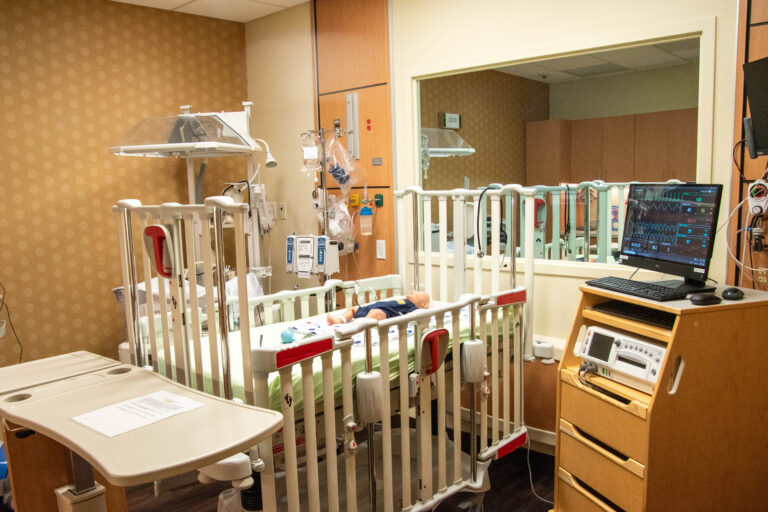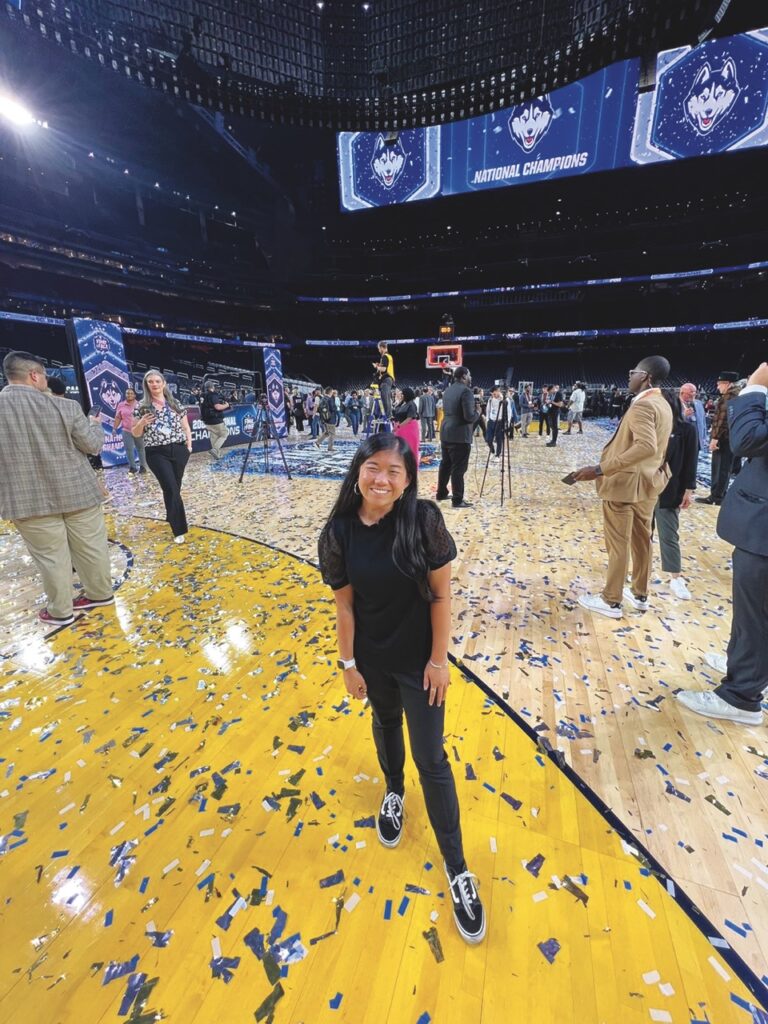On the second floor of Cramer Hall, an otherwise nondescript conference room serves as a nod to the past, offering a glimpse into the history of the College of Health Sciences’ Speech and Hearing Clinic. Dotted with relics of yesteryear from the Department of Speech Pathology and Audiology, the room overlooks the former sites of the John Plankinton Mansion and Monitor Hall.
The clinic, which is celebrating its 100th birthday this year, was founded by Marquette faculty member William R. Duffey, Grad ’26, in the Plankinton Mansion, which sat between Haggerty and Engineering halls. The new clinic’s mission was, and still is, to evaluate and serve adults and children with speech and hearing disorders as it strives to provide quality services to those most in need in the greater Milwaukee community.
The clinic later moved to Monitor Hall before taking residency in Cramer Hall, where today the conference room museum stirs memories for generations of Marquette grads.
“I can still remember the rooms in Monitor Hall where I provided therapy as a student,” says Wendy Krueger, Comm ’92, director of clinical education in the Department of Speech Pathology and Audiology. “I remember when supervisors stepped in during my sessions when I needed direction because I was unsure of what to do.”
For the past century, the clinic has lived out its founder’s mission to help people overcome their speech disorders and to meet the needs of the community. Today it is a premier resource for those seeking therapies for a host of communication and related disorders.
“True to Marquette’s service-oriented mission, the clinic flexes to meet the needs of the community and the client population,” says Dr. Emily Patterson, chair of the Department of Speech Pathology and Audiology, who calls the Speech and Hearing Clinic’s 100-year evolution “remarkable.”
“It is truly special when you think about how the profession of speech pathology and audiology was not even formed when this clinic started in 1923,” Patterson adds. “It’s inspiring to me, and I hope to others, that whatever seeds we plant on campus, whatever ideas we nurture, can grow into something truly special 100 years later.”
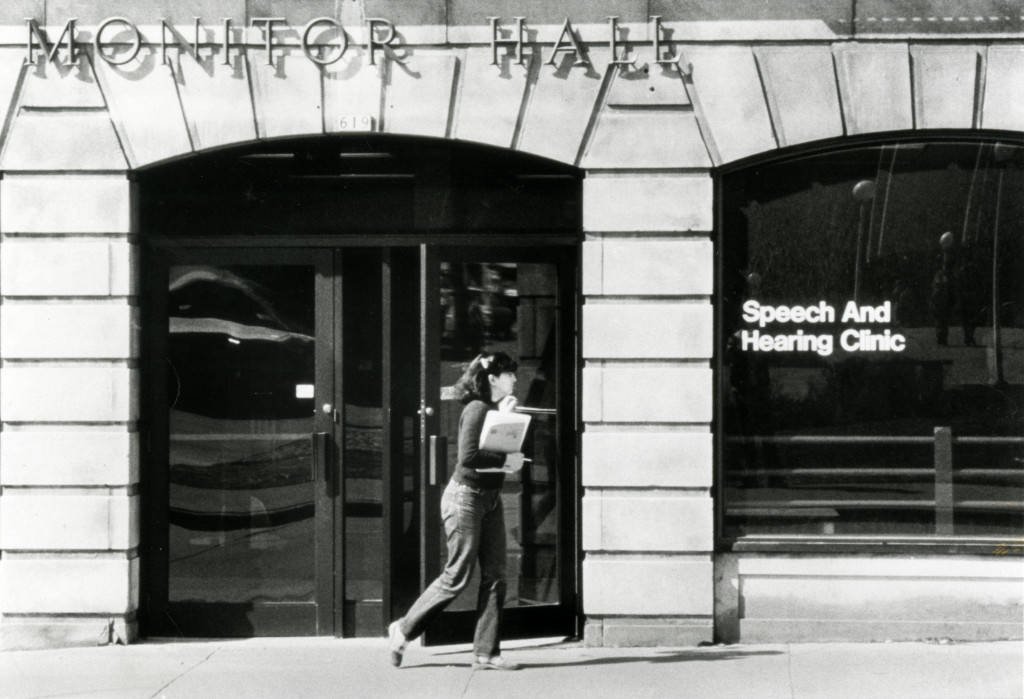
An illustrious history of helping others
When the clinic opened, professionals in the field were called speech teachers, not therapists or speech-language pathologists — they typically worked in schools, not clinics or hospitals.
“The field was initially focused primarily on speech sound or articulation disorders, which grew to include language disorders. But it was still pediatric-focused,” Krueger explains. “Now, in our clinic, we see clients of all ages, from 14 months old into their 90s, providing care for speech, voice, fluency, language, cognitive, social, and swallowing or feeding disorders.
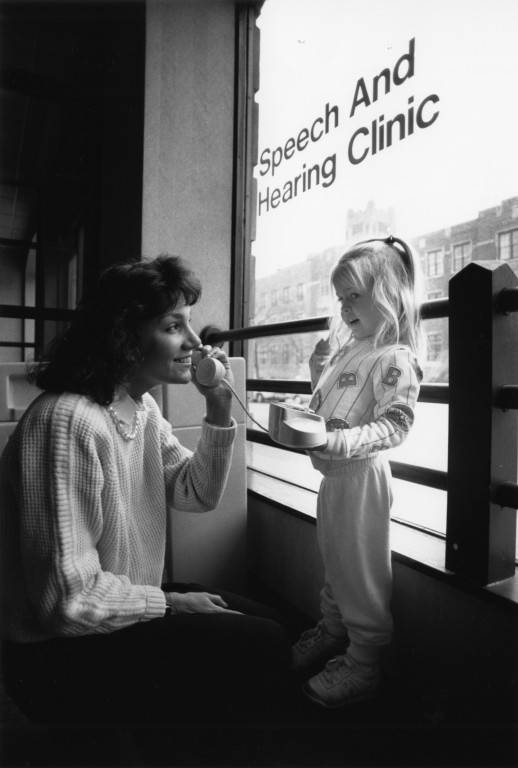
Former Speech and Hearing Clinic Coordinator Dorothy Schlueter — who was known as Dorothy Wood during her time at Marquette — says the clinic took a huge step in 1975 when it went from just being offered on Saturdays to operating Monday through Thursday.
The clinic also hired two full-time supervisors and a part-time supervisor to see more clients. The new hires allowed students to take on clinical work for a client and gave them a supervisor to assist in administering the therapy.
From the first students to benefit from that professional supervision to present day, the alumni who worked in the clinic consider themselves a tight-knit family that spans generations, which is what makes the centennial so special to them. The former students had the opportunity to celebrate the milestone together over the summer and once again in the fall.
“It was so heartwarming to hear alumni and current students recalling specific experiences similar to mine,” says Krueger, whose career has come full circle since her days as a student in Monitor Hall. “Talking about the clinical faculty members that they worked with and how what they learned from them still holds impact now as practicing clinicians.”
From the current clinic director and staff to the former directors and staff, the sentiment remains the same.
“I really loved the students,” Schlueter says. “Seeing them grow and into professionals was so rewarding.”
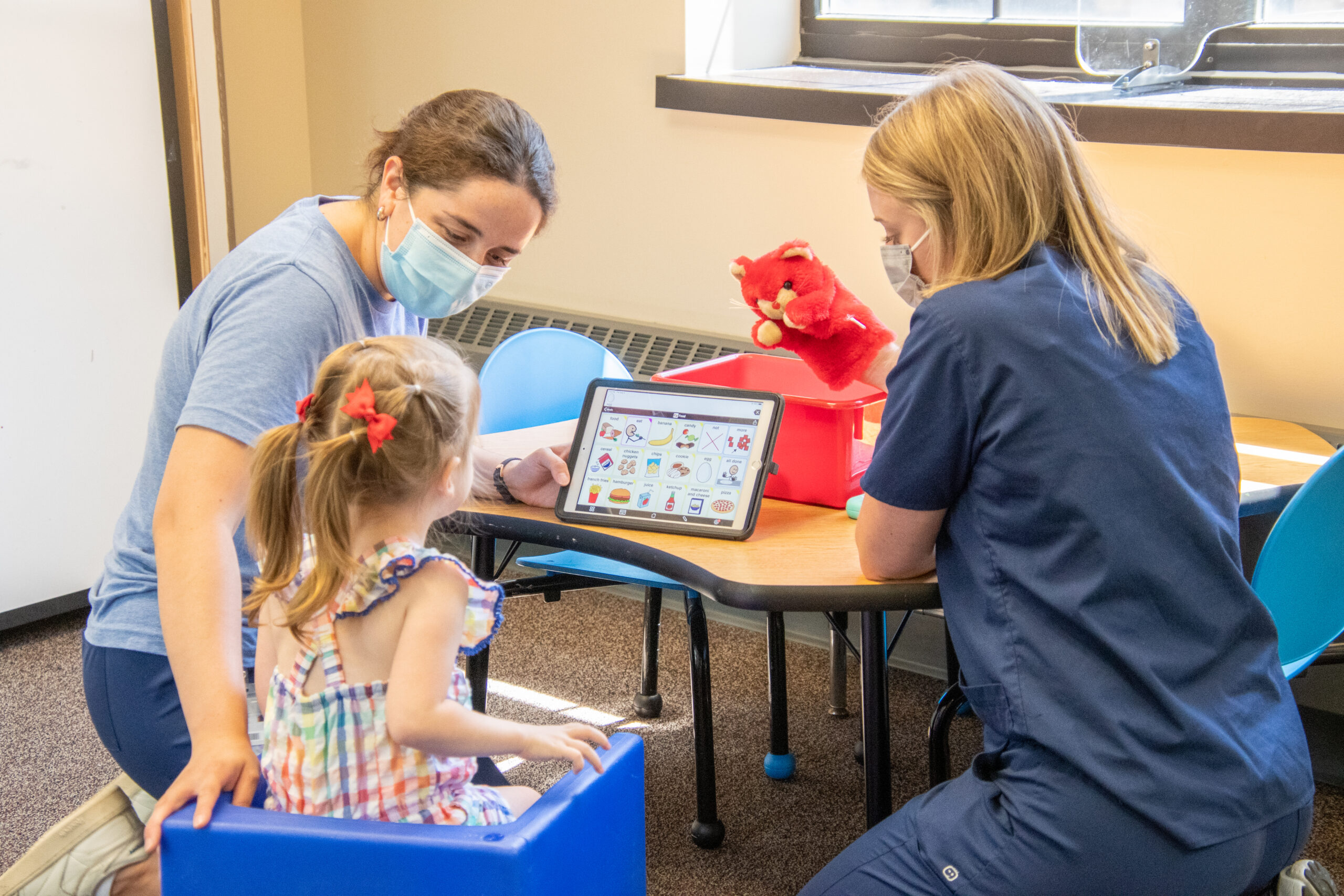
A time-tested experience
Today, students like speech pathology graduate student Elizabeth Dungan get their first experience in the clinic in their 1001 class — which Dungan took after rethinking her decision to become a teacher.
She says her experience in that introductory class affirmed her plan to switch majors and focus on a vision of becoming a speech-language pathologist.
“I saw the students who were in the place I would be in four years later leading, planning and delivering services to members of the community,” Dungan says. “Being able to see directly how the interventions I use, the activities I plan and the pathologies I learn about in class are impacting clients has moved me to connect with the mission of this field.”
Now deep into her studies, Dungan has embraced the mission of providing the best treatment available and holistically caring for others. She regularly draws on the three core conditions of counseling — empathy, genuineness and unconditional positive regard.
“In all aspects of the clinic, I see the value of knowing we are working with people first and clients second,” Dungan says. “If we cannot connect with the families we serve while striving to understand their goals and needs, we cannot make real progress for our clients.”
Clients aren’t the only ones making progress. Dungan recalls how, on many occasions, her supervisors would give her insights into ways to change a plan or when to stick with one.
“I have been able to see a client progress from the interventions and grow in their communication skills,” Dungan says. “But sometimes we see slow and discouraging progress. My supervisors have helped me work through these situations and see the value in them.”
One moment when Dungan was feeling discouraged stands out clearly.
Because she wasn’t seeing steady progress, Dungan thought she wasn’t fulfilling her role as a clinician. Dungan found herself listing all the things she wasn’t doing, so her faculty supervisor told her to take a more positive approach.
“My supervisor told me instead to look at and write down what my client can do” Dungan says. “Highlighting what they could do and what they were doing helped me see the skills and progress that I had overlooked, and boosted my confidence.”
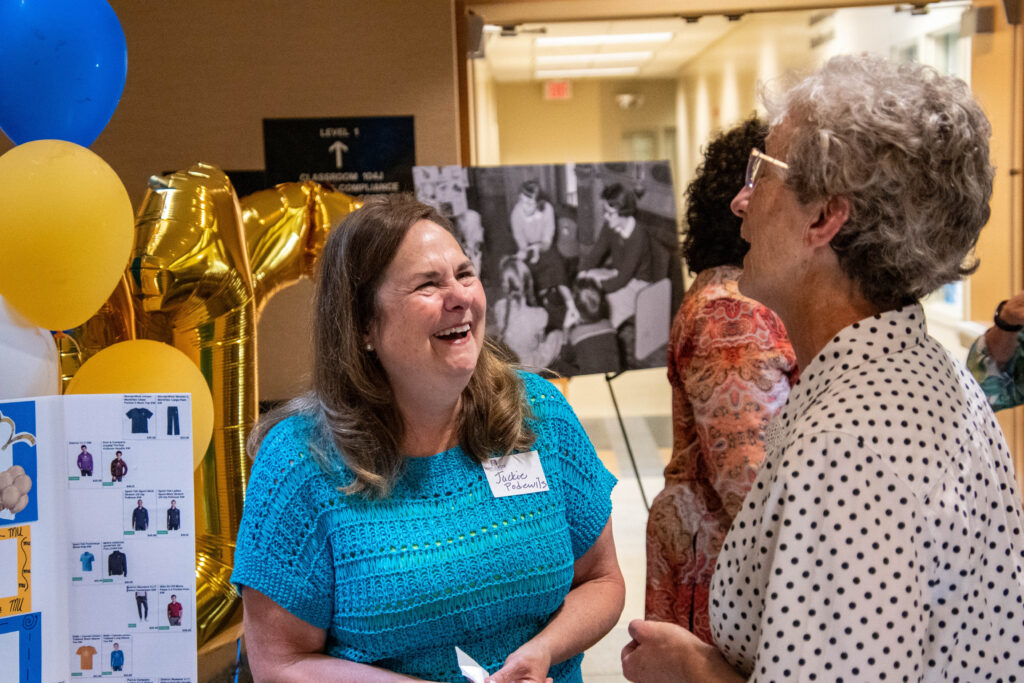
Pride of the past
While 1975 was a watershed moment for the clinic, it was also the beginning of a long, storied tenure for Schlueter.
“I worked for the program for 39 years, including 31 as the clinic coordinator,” Schlueter says. “It was pretty much my life’s work. I was proud of it and happy to see it grow and then evolve to what it has become today.”
Schlueter said she took pride in the clinic’s sterling reputation in the community. That regard helped draw support from groups like the PBX Board Operators — a group of telephone operators whose mission included helping fund the clinic.
Schlueter attributes the clinic’s now century-plus longevity in part to it being a community outreach clinic.
Presently, the clinic is primarily funded by donations from benefactors, scholarships and fees paid by clients — which are sometimes paid over time through plans, reduced or waived entirely based on the client’s ability to pay.
That means the clinic can provide supplemental services to individuals receiving therapy elsewhere and continuation of therapy to a client if they’ve been dismissed from another clinic and wish to keep progressing.
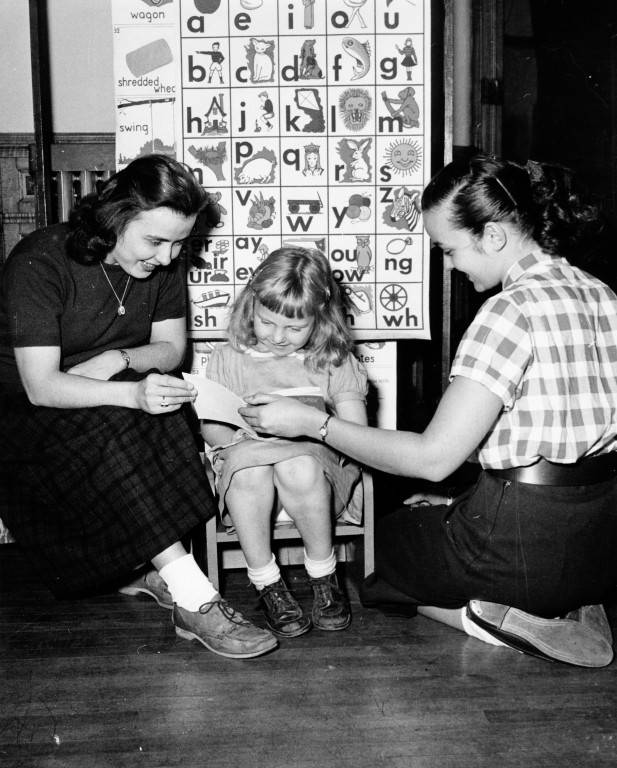
“There is still hope for them,” she says.
From clients to students to staff members, Schlueter’s reach and influence were wide-ranging during her tenure as the clinic coordinator.
In 1989, Jackie Podewils was working for St. Luke’s Hospital in Milwaukee when she had the opportunity to teach a course at Marquette. Throughout her time at St. Luke’s, Podewils encountered Schlueter, who would visit the Marquette students doing clinical work at St. Luke’s and observe them.
Schlueter is an “icon in the field,” Podewils says. So when the opportunity came to take a job with the Speech Pathology and Audiology Department, Podewils knew it was a great fit.
Her role included finding external placements, visiting with the day-to-day clinical instructor supervising students, and working with the Department of Public Instruction to have students licensed to work in schools — something she knew all about having worked in the School District of Waukesha. The job also came with the chance to learn from and be mentored by Schlueter.
That mentorship led to the opportunity to succeed her mentor as the Speech and Hearing Clinic director in 2006, a position Podewils held for 12 years until 2018.
Podewils says she was humbled by the chance to be such an influential part of the Speech and Hearing Clinic.
“I really tried to carry the torch and continue the legacy that was handed off to me,” Podewils says. “I am so proud of the professionals I worked with and their commitment to bringing new ideas and expertise to develop clinical programs to help people in need.”
Kreuger says it has been an honor to follow in Podewils’ footsteps given the vast amount of accomplishments during her time at the helm of the clinic.
“As a clinical faculty member under Jackie, I admired how she led us through a period of great expansion in the variety of services offered and an increase in the number of student clinicians trained each year,” she says. “Everything she did was done with such purpose, finesse and compassion. It has definitely been a welcome challenge to try to fill her shoes.”
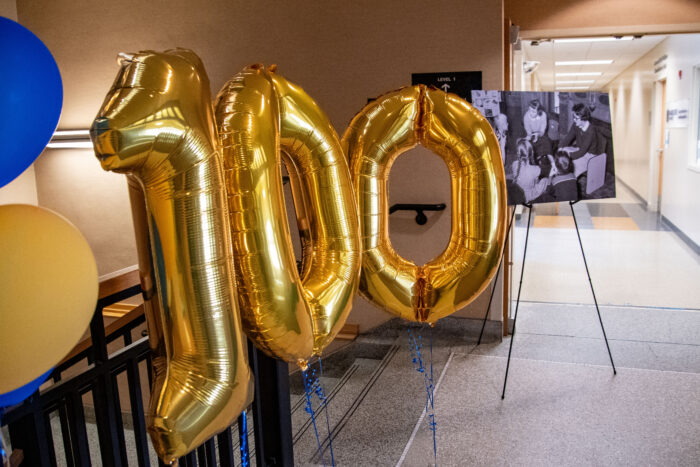
Adapting for a hope-filled future
As a student, Dungan says, being enrolled during the centennial celebration allowed her to reflect on its significance.
“The milestone is a meaningful one to be a part of as a student because it really highlights the importance of career and field growth,” she says. “Our clinic has been serving the local community for 100 years. Yet there is and always will be a lot of room to grow and develop as professionals.”
One of Dungan’s favorite aspects of the Speech and Hearing Clinic is the diversity of experiences and expertise the staff has, which exposes students to a wide array of modern treatments.
The clinic often weaves in emerging therapies to fit its client’s needs, meaning the next generation of clinicians is trained in administering the most current, evidence-based treatments for a particular disorder. That builds the foundation for lifelong practice.
“Clinic staff see populations in need and pursue the training and education to provide those services to members of our community,” Dungan says. “Supervisors have always sought to continue reaching out to our community and explore more ways in which our clinic can provide services and intervention to them.”
Today, the clinic offers 11 clinical programs, including the groundbreaking Intensive Aphasia Program, which treats acquired language disorders or related impairments due to neurological damage from a stroke or a traumatic brain injury; Hablamos Marquette, which helps Spanish-speaking children navigate their speech disorders; and Tiny Listeners and Communicators, which helps children aged one to three with speech, language and feeding impairments through play in individual and small group activities.
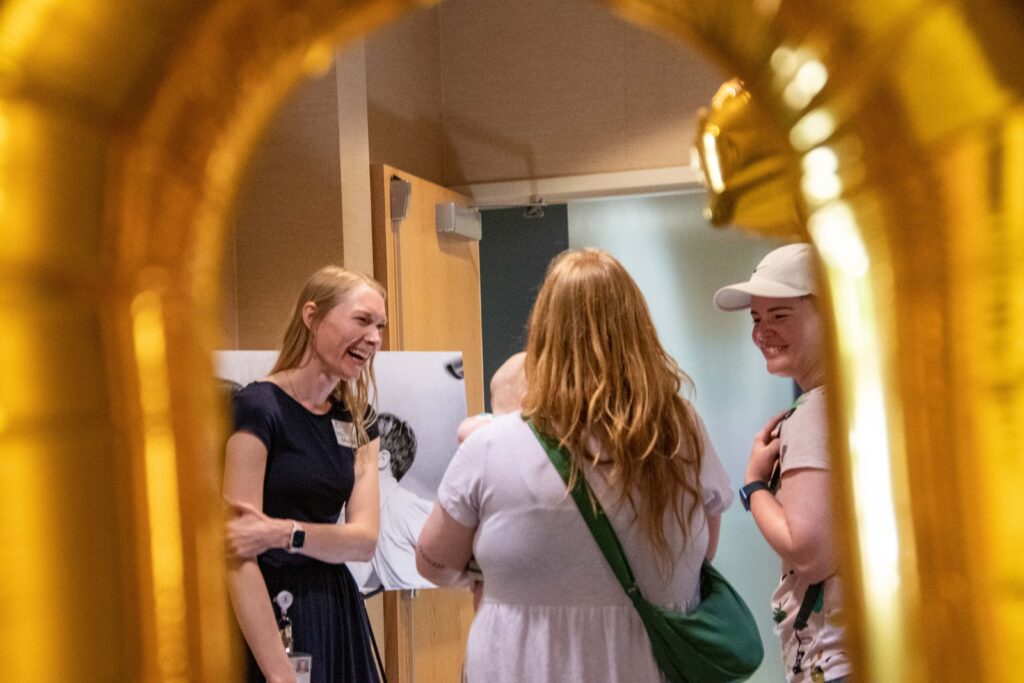
Patterson says Milwaukee has no shortage of facilities that are able to serve and treat hearing and speech disorder clients. But she has always told the clinic community — whether it’s students, faculty, staff, clients or donors — that their true strength is the clinic’s flexibility.
“Many of our referrals come from other providers in the community, and it’s because of the excellent reputation the clinic has and our ability to fill in the gaps for services that can’t be provided in other facilities,” Patterson says.
Giving more thought to the clinic’s remarkable, century-spanning, reputation, Patterson says she’s humbled.
“Thinking about the history of the clinic and what we have built year to year, decade to decade, it’s extraordinary,” she says. “The students that we have produced for the last 100 years, the clients that have been served over those years — it’s all built toward the reputation that we’re proud to have today.”
That reputation culminated in a pair of celebrations for the centennial in the summer and fall of 2023.
Alumni returned to Cramer Hall and Schroeder Complex, remembering experiences of yesteryear and the formative impact the clinic had on them in their professional development.
Donors toured the clinic, seeing how their generous gifts supported real change in people’s lives and marveled at old pictures of the clinic that reveal how far it has come.
Former faculty and staff recounted profound moments where they helped a student break through in providing treatment to a client. Those same clients welcomed with open arms the students and faculty who helped them achieve real change in their lives.
For Patterson, seeing decades of the clinic community come together to celebrate was something to behold. “Everybody who came back had such fond memories of their experience in the program and with working with clients in the clinic. That sense of pride, joy and fondness stands the test of time.”
